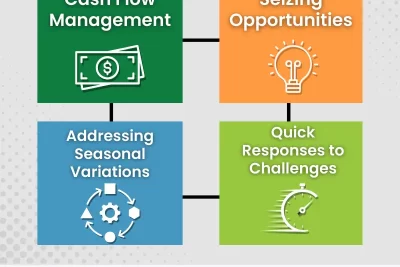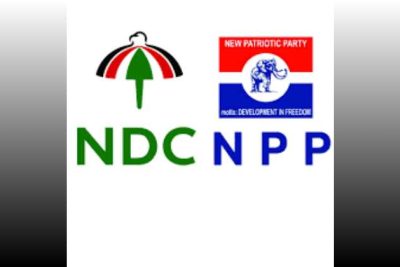
Ultimate Study Guide for AP Language and Composition: Ace Your Exam

- Comprehensive Overview of the AP Language and Composition Exam
- Key Strategies for Effective Studying: Your Ultimate AP Language Study Guide
- Essential Resources: Recommended Books and Materials for AP Language Preparation
- Practice Tests and Sample Questions: Boost Your Confidence for the AP Exam
- Tips for Writing High-Scoring Essays in AP Language and Composition
Comprehensive Overview of the AP Language and Composition Exam
The AP Language and Composition Exam is designed to assess students abilities to analyze and create arguments in various forms of writing. This exam is crucial for high school students who wish to earn college credit or advanced placement in their college courses. Typically offered to juniors and seniors, the exam evaluates skills in reading comprehension, analytical writing, and rhetorical strategies.
Structure of the Exam
The AP Language and Composition Exam is divided into two main sections: multiple-choice questions and free-response questions. The structure is as follows:
- Multiple-Choice Section: This section comprises 45 questions that test students ability to read and interpret a variety of texts, including nonfiction, essays, and speeches. Students are required to analyze how authors use language to achieve specific purposes.
- Free-Response Section: This section includes three essays: a synthesis essay, an analysis essay, and an argumentative essay. Each essay prompts students to demonstrate their writing skills, critical thinking, and ability to construct well-reasoned arguments.
Skills Assessed
The AP Language and Composition Exam evaluates several key skills that are essential for academic success. These include:
- Argumentation: Students must construct coherent arguments supported by evidence and reasoning.
- Analysis: Analyzing how authors use rhetorical strategies and stylistic choices to convey meaning is a critical component of the exam.
- Writing Proficiency: The exam measures students ability to write clearly and effectively, tailoring their style and tone to their intended audience.
With a focus on real-world applications of writing and analysis, the AP Language and Composition Exam prepares students for college-level coursework and helps them develop essential communication skills that will benefit them in their academic and professional futures. The exam not only provides an opportunity for college credit but also fosters a deeper understanding of language and its impact on society.
Key Strategies for Effective Studying: Your Ultimate AP Language Study Guide
To excel in AP Language, implementing effective study strategies is crucial. One of the most impactful approaches is to create a structured study schedule. By breaking down the syllabus into manageable sections, you can allocate specific times for each topic, ensuring comprehensive coverage before the exam. Consider using a planner or digital calendar to keep track of your study sessions, deadlines, and practice tests. Consistency is key; aim for short, focused study periods followed by breaks to maximize retention and minimize burnout.
Another essential strategy is to utilize active reading techniques. This involves engaging with the text beyond mere comprehension. As you read complex essays and literary works, annotate important passages, highlight key themes, and jot down questions that arise. This method not only enhances your understanding but also prepares you for the analytical writing components of the exam. Additionally, practice summarizing each piece in your own words to reinforce your grasp of the material.
Utilizing diverse resources can significantly bolster your preparation. Consider incorporating the following tools into your study routine:
- Practice Exams: Take full-length practice tests under timed conditions to familiarize yourself with the exam format and pacing.
- Study Groups: Collaborate with peers to discuss challenging concepts and share insights, fostering a deeper understanding of the material.
- Online Resources: Explore educational platforms and forums for additional practice questions, tips, and explanations.
Finally, honing your writing skills is paramount in AP Language. Regularly practice writing essays in response to prompts, focusing on developing a clear thesis and supporting it with well-structured arguments. Seek feedback from teachers or peers to identify areas for improvement. Engaging in peer reviews can also enhance your critical thinking and editing abilities, ensuring you are well-prepared for the writing portion of the exam.
Essential Resources: Recommended Books and Materials for AP Language Preparation
When preparing for the AP Language and Composition exam, having the right resources can make a significant difference in your success. Below are some highly recommended books and materials that can help you hone your skills in critical reading, writing, and analysis. These resources cater to various aspects of the curriculum and provide comprehensive support for students at different levels of understanding.
Key Textbooks
1. "The Language of Composition: Reading, Writing, Rhetoric" - This textbook is widely regarded as a foundational resource for AP Language students. It offers a rich array of essays and visual texts, along with insightful commentary on rhetorical strategies. The integration of writing assignments helps students practice their analytical skills effectively.
2. "AP English Language and Composition Exam Prep" by Kaplan - This guide is tailored specifically for AP exam preparation. It includes practice questions, test-taking strategies, and a detailed review of the exam format. The comprehensive nature of this resource ensures that students are well-prepared for both multiple-choice and free-response sections of the exam.
Supplementary Materials
In addition to textbooks, various supplementary materials can further enhance your AP Language preparation. Consider the following resources:
- Online Practice Tests: Websites like AP Classroom offer practice exams that mimic the actual test format, allowing students to familiarize themselves with the types of questions they will encounter.
- Writing Guides: "They Say / I Say" by Gerald Graff and Cathy Birkenstein provides essential templates for argumentative writing, helping students articulate their ideas clearly and effectively.
- Essay Anthologies: Collections such as "The Best American Essays" series expose students to high-quality writing and diverse perspectives, fostering a deeper understanding of style and argumentation.
Using these recommended books and materials will equip you with the necessary tools to excel in the AP Language and Composition exam. Each resource is designed to reinforce key concepts and skills, ensuring a well-rounded approach to your preparation. Whether you prefer in-depth textbooks or concise study guides, the right combination of resources can help you achieve your academic goals.
Practice Tests and Sample Questions: Boost Your Confidence for the AP Exam
Preparing for the AP Exam can be a daunting task, but utilizing practice tests and sample questions can significantly enhance your readiness. These resources not only familiarize you with the exam format but also help identify areas where you may need additional focus. By engaging with practice tests, you can simulate the testing experience, which can alleviate anxiety and build confidence.
Benefits of Using Practice Tests:
- Realistic Exam Experience: Practice tests mirror the structure and timing of the actual AP Exam, allowing you to develop effective time management skills.
- Identify Weaknesses: By reviewing your performance on practice tests, you can pinpoint specific topics that require further study, enabling targeted preparation.
- Improved Question Familiarity: Sample questions expose you to the types of questions that may appear on the exam, helping you become more comfortable with the content.
Incorporating a variety of practice materials is key to a comprehensive study plan. Look for official AP practice tests, as well as reputable third-party resources, to diversify your exposure. Many practice questions come with detailed explanations, which can deepen your understanding of the subject matter and clarify any misconceptions you might have.
Moreover, regularly scheduling practice tests throughout your study period can help track your progress. As you see improvements in your scores, your confidence will naturally grow. Make sure to review not just the correct answers, but also the ones you missed, to reinforce your learning and prepare effectively for the challenges of the AP Exam.
Tips for Writing High-Scoring Essays in AP Language and Composition
Writing high-scoring essays in AP Language and Composition requires a blend of strong analytical skills, clear organization, and effective language use. To excel in this course, it’s essential to understand the rubric and expectations of the exam. Here are some tips to help you craft compelling essays that stand out.
Understand the Prompt
Before you start writing, take a moment to dissect the essay prompt. Identify the key components that you need to address. This will help you stay focused and ensure that your argument remains relevant throughout your essay. Pay attention to action words such as "analyze," "compare," or "argue," as they will guide your approach. Make sure to underline or highlight important phrases in the prompt to keep them in mind while drafting your response.
Develop a Strong Thesis Statement
Your thesis statement serves as the backbone of your essay. It should be clear, concise, and argumentative. A well-crafted thesis not only presents your main idea but also sets the tone for the entire essay. To create a strong thesis, consider the following tips:
- Be specific: Avoid vague language and generalizations.
- Take a stance: Clearly express your position on the topic.
- Be arguable: Ensure that your thesis can be supported with evidence.
Use Evidence Effectively
To bolster your arguments, integrate evidence from the text you are analyzing. This can include quotes, paraphrasing, or summaries. When using evidence, follow these guidelines:
- Contextualize your evidence: Introduce the quote or example to provide context.
- Analyze the evidence: Don’t just drop in quotes; explain how they support your thesis.
- Variety of sources: Use multiple pieces of evidence to strengthen your argument.
Lastly, ensure your essay is well-organized, with clear transitions between paragraphs. This will enhance the readability of your essay and guide the reader through your argument seamlessly. A logical flow not only helps in maintaining coherence but also makes your analysis more persuasive.
Did you find this article helpful? Ultimate Study Guide for AP Language and Composition: Ace Your Exam See more here General.
Leave a Reply





Related posts